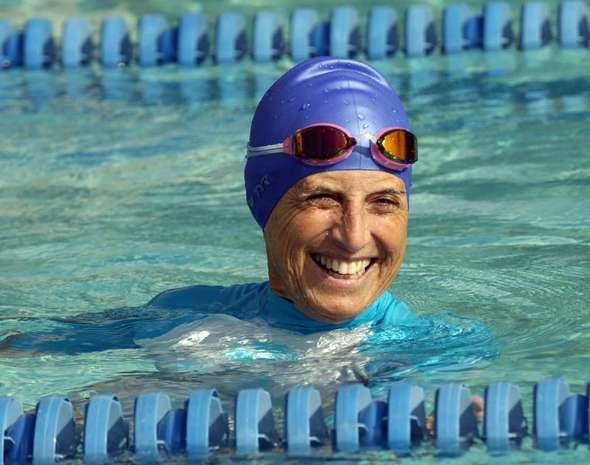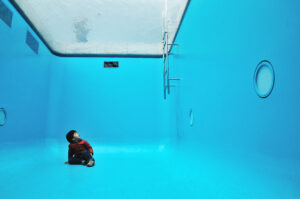Lifeguard Responsibilities
What are the responsibilities of a lifeguard? How do we know if the lifeguard is living up to those responsibilities? Can you identify each of the following Lifeguard Fails?
Waaaaaalk!
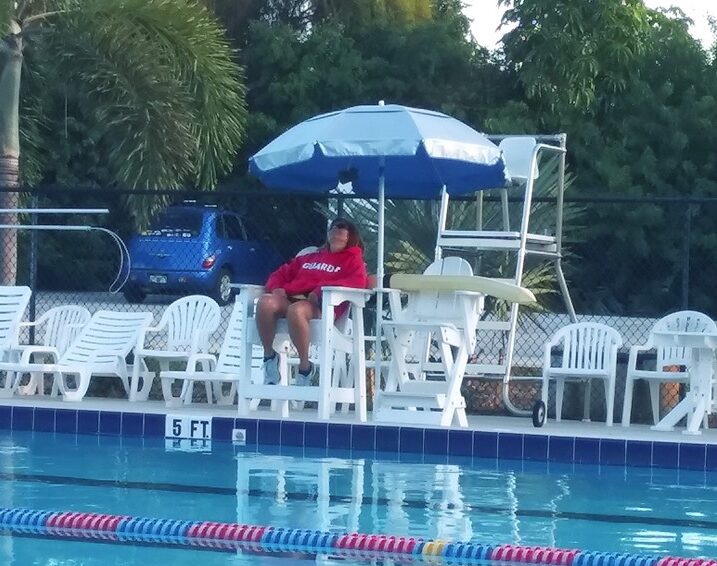
No one drowns when we’re around
These are two questions that every lifeguard should be able to answer. They should know if he or she is being a good lifeguard. The certification courses are very specific in the behaviors of the lifeguard and how they are to respond in an emergency. Facilities are usually more specific according to the needs of the facility and patrons. There are times the lifeguard falls short of their responsibility and tragedy can occur.
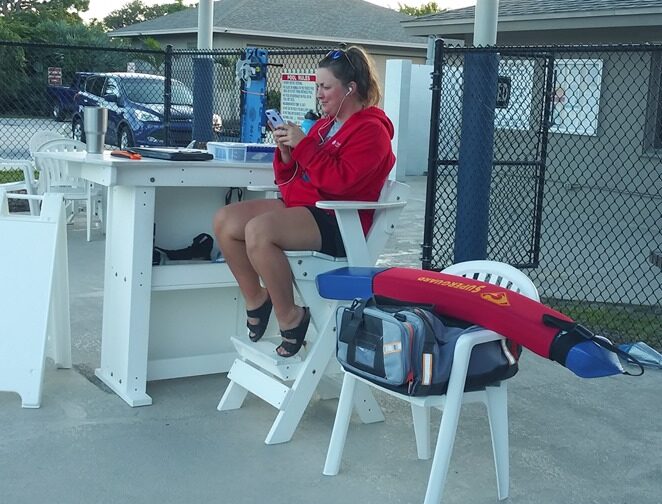
Let’s first take a look at what the responsibilities are:
- Take responsibility to help protect the lives of people in their designated area
- Mentally and physically prepared at all times to perform their duties
- Maintain proper certifications, as required by the job. Some jurisdictions have additional requirements for lifeguards.
- Must be able to recognize and respond to patrons quickly in need of assistance.
- Look out for safety hazards in the pool, on the pool deck and ancillary facilities, if required
- Check safety equipment
- Be on alert for hazardous environmental conditions
- Enforce safety procedures
- Write reports that may include information on the state of equipment, incident reports, or reports required by management
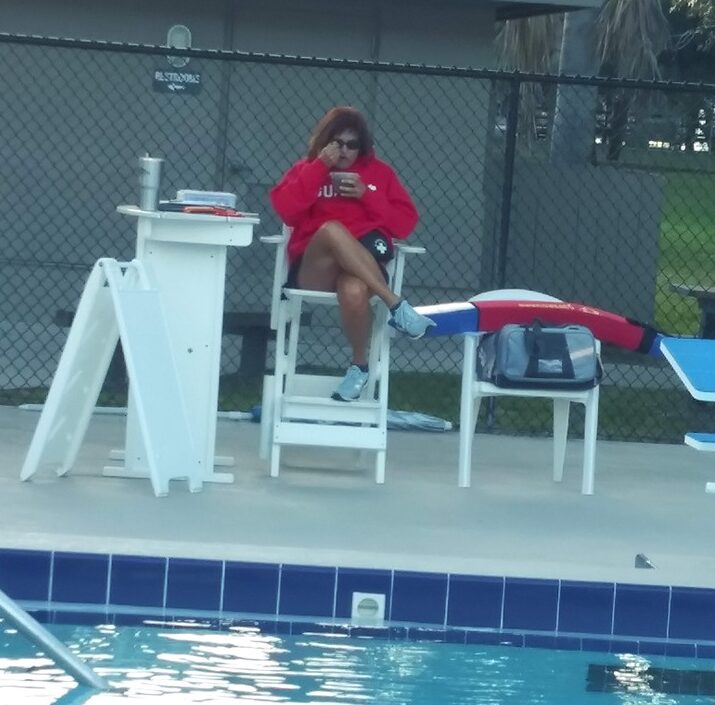
Don’t make me use my Lifeguard voice
Inservice training should occur regularly during the course of employment. Some facilities are only seasonal. Some facilities are open all year during all seasons. Lifeguards gain confidence and begin to take ownership of their skills as a result of in-services.

How do we know Lifeguards are living up to their responsibilities:
- During a shift, is the lifeguard aware of potential dangers?
- Is the lifeguard well rested before the shift?
- Does the lifeguard observe the patrons from the time the patron enters the facility until said patron leaves the premises?
- During an in-service is the lifeguard performing skills to expectation?
- Does the lifeguard know and understand and able to perform according to the Emergency Action Plan?
- Is the lifeguard alert and covering the assigned zone effectively?
- Is the lifeguard on time for shifts and dressed according to requirements of the facility?
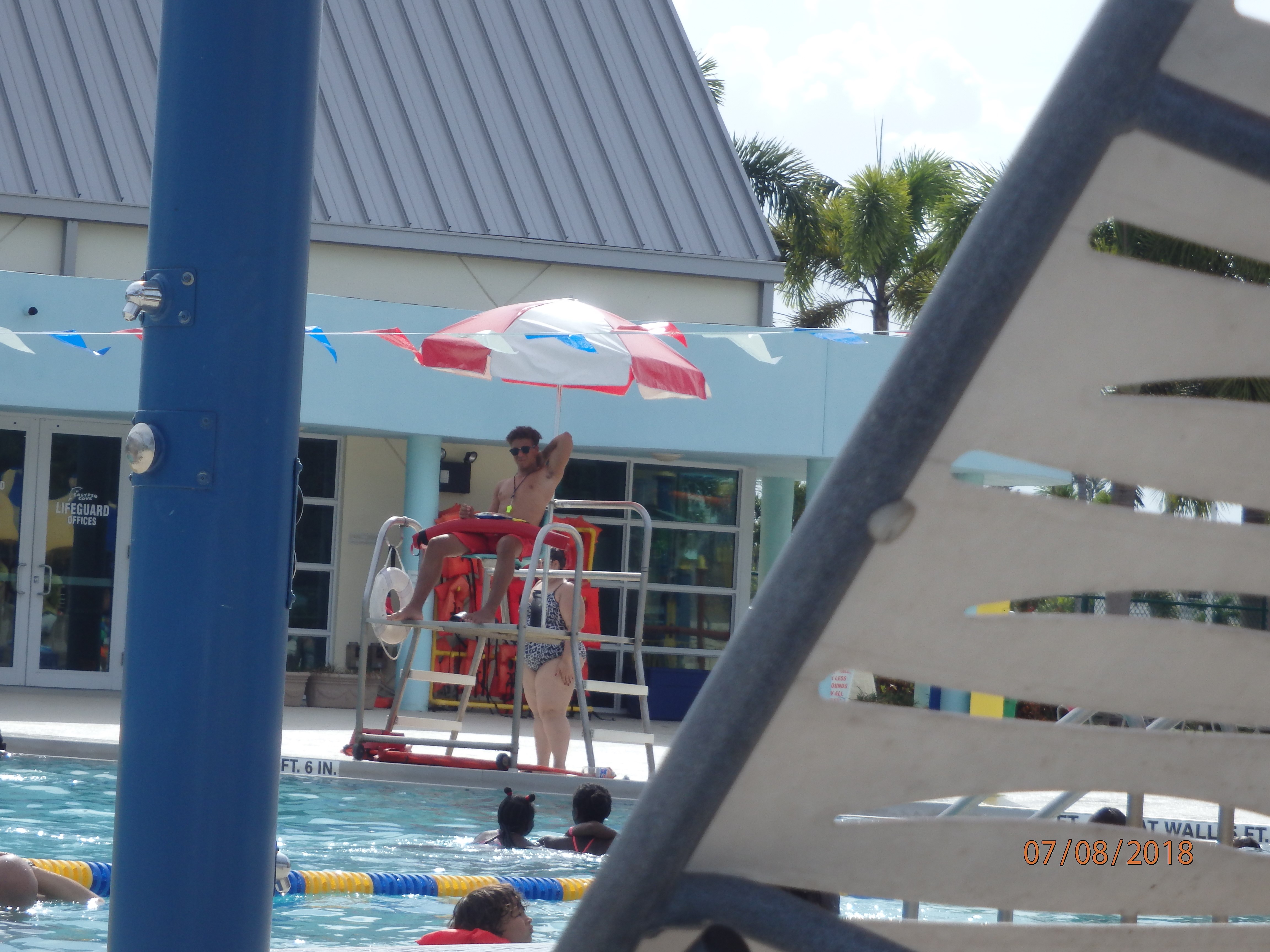
Don’t mess with the whistle
There are many distractions that can and will occur during the course of a shift. Patrons like to engage in conversation with lifeguards, especially in smaller facilities. Unfortunately, the patron, many times, will stand directly in front of the lifeguard. They end up blocking the view of the pool. The lifeguard needs to be direct. They need to explain the situation to the patron and that he is blocking the view of the pool. A Lifeguard must direct the patron to please move to the side, and conversations need to be short.

Lifeguards need to rotate on a schedule to remain vigilant. There are roving lifeguards and sitting lifeguards, depending on the facility. Remaining alert is extremely important and can not be maintained if a lifeguard sits for hours in one place. Even during a 30-minute rotation, which is long, the lifeguard must be able to get up. They must be able to stand, and possibly walk back and forth in front and to each side of the stand. Proper scanning can also help with maintaining an alert state. Proper scanning includes checking the zone right, left, down and even up. They need to scan moving the head, not just the eyes.

Sometimes a lifeguard will come in for a shift hungover from too much alcohol or drugs or upset due to personal problems. This lifeguard is not fit for duty. That lifeguard can’t guard effectively. What does a manager do if there is no one to cover the shift? That is up the facility rules and who is qualified to take that shift.
similar article Lifeguard Recruiting & Retention

Distractions
Are cell phones allowed to remain with the lifeguard while on duty? Is personal music or podcast or video allowed to be in play with the lifeguard on duty? Are lifeguards allowed to eat meals while on the stand? These are all distractions that need to be denied to on-duty lifeguards.
All facility managers and directors strive to maintain a safe environment for their patrons.
